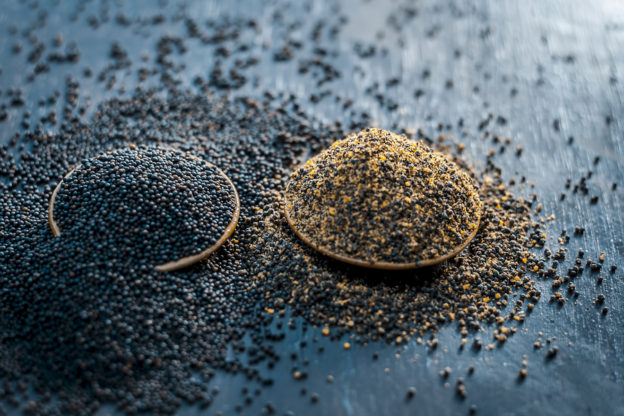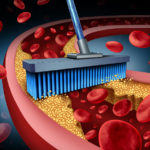By David Blyweiss, M.D., Advanced Natural Wellness
February 22, 2019
Patients concerned about their heart health usually want to know just three or four things.
Is my cholesterol okay? How are my triglycerides? And what’s my blood pressure? Is my homocysteine normal?
All of these are certainly considerations when it comes to your arterial health. (Pretty much everyone knows that if an artery gets clogged it can trigger a stroke or heart attack.)
But how often do you wonder what it is that actually makes your heart beat… how it can contract and relax more than 100,000 times a day with out getting tired? And how can you make sure it keeps beating?
This is a very serious question, because if your heart stopped beating you would go into sudden cardiac arrest (SCA), which is much more life-threatening than a blocked artery.
You see, a heart attack happens when there’s a blockage and your heart can’t get enough oxygen-rich blood.
Open your arteries, improve blood flow for a new health miracle...
Did you know your circulatory system has over 60,000 miles of arteries, veins and other blood vessels, if stretched end to end?
But as you age, your blood vessels undergo changes, which may cause them to stiffen, thicken and get clogged.
GOOD NEWS! Doctors have now identified a “Miracle Molecule” inside your arteries that helps OPEN your arteries and IMPROVE blood flow.
It’s what Dr. Valentin Fuster calls it, "One of the most important discoveries in the history of cardiovascular medicine."To you, that means...
- Healthy blood pressure
- Sharper mind and memory
- Skyrocketing energy and muscular strength
- Increased pleasure and passion in the bedroom
- Improved circulation to every cell and organ in your body
Go here to discover a new natural way to significantly boost the levels of this miracle molecule in YOUR body NOW!
Sudden cardiac arrest, on the other hand, occurs when the heart’s electrical system malfunctions. The heart suddenly and unexpectedly stops beating. It can no longer deliver blood to the rest of your body, so everything just starts shutting down.
It’s a leading cause of natural deaths here in the U.S., and nearly 90% of SCAs are fatal. Even worse, it’s estimated that one out of every 7.4 people in the U.S. will die of sudden cardiac death.
In other words, maintaining a steady heartbeat is pretty damn important!
3 Must-Have Minerals for Your Beating Heart
Just to be clear, about half of women and 70% of men who die from sudden cardiac arrest have no clinical history of heart disease. It’s an entirely unexpected event that can strike anyone, anywhere, at any time.
There may be an underlying condition for SCA, such as heart muscle abnormally/defect or infection. But the most preventable cause of sudden cardiac arrest is, by far, mineral imbalances that cause your heart’s electrical system to malfunction.
In particular, magnesium is crucial when it comes to maintaining a normal heartbeat. In fact, it’s involved in all of the electrical activity in your body – from heart contractions and muscle function to nerve impulses, energy production and brain activity.
Unfortunately, it’s estimated that upwards of three out of every four people might not be getting enough of this mineral in their diets. Even worse, a magnesium deficiency could increase your risk of sudden cardiac death by more than 50%.
The World's Quickest Solution for Ending Prostate and Urinary Misery
This has recently been revealed to be one of the only real breakthroughs in prostate health.
The seeds of a strange fruit (sometimes called "Chinese Apples") hold powerful phytonutrients that are a revolution in prostate health.
In fact, UCLA and Veterans Administration research have now proved this to be true.
Not only that, but it may be the worlds quickest solution for ending prostate misery.
Simply stated, these phytonutrients represent a huge step beyond beta sitosterol, saw palmetto, and other phytosterols alone.
Simply click HERE if you want to have fast prostate relief...restful, uninterrupted sleep...no more constant "urges to go"...enhanced virility...and optimal prostate support for life.
But unless you enjoy eating a lot of nuts, seeds, beans and green veggies, your magnesium levels are probably below par.
You can find out what your levels are by asking your doctor for an “RBC magnesium test”. It’s the best way to check and much more accurate than the “total serum magnesium test”.
If your levels are low, I generally recommend 5 mg of magnesium per pound of body weight. Take it in divided doses throughout the day. Look for ones that end in “ate”… as in glycinate, threonate, malate, citrate and so forth. (I like to take combinations of these in the same supplement or rotate two or three different ones throughout the month.)
Calcium is another must-have to maintaining electrical activity in your heart. If your blood levels of calcium are lower than 8.95 mg/dL, you have more than double the odds of SCA than you would if your calcium levels were 9.55 mg/dL.
Broccoli, kale, turnip greens and arugula all have high calcium content. So do canned sardines and salmon. This makes them an important part of your diet.
However, if you can’t get enough calcium from your food, you can take a supplement. (All it takes is a simple blood test to find out.)
To boost your calcium stores, I recommend 1000 mg of calcium citrate daily. Calcium citrate is much more absorbable than calcium carbonate so it’s easier for the body to utilize. But don’t take it all at once: The body can only absorb around 500 mg of calcium at a time.
Potassium works together with calcium and magnesium to “charge up” the electrical tissue in your body. Without that “charge”, your heart muscle wouldn’t be able to contract or hold a steady beat.
Not only are healthy potassium levels absolutely necessary to regulate heart contractions. It also helps to flush excess sodium from the body. (And as you well-know, sodium is a key factor in your risk of stroke or heart attack.)
But here’s a shocker: Only 1.9% of U.S. adults are getting enough of it! That’s right. Only about two out of every 100 adults meet their daily potassium needs of 4700 mg or more daily.
Considering that almost 100% of the adult population is also exceeding the American Heart Association’s ideal limit of 1500 mg daily, this is a travesty. And a whopping 90% exceed the Institute of Medicine’s “tolerable upper intake level” of 2300 mg.
No wonder cardiovascular disease is the number one killer in America!
IMPORTANT: I don’t recommend supplementing with potassium unless you are advised to do so by your physician. Too much potassium can be as dangerous. So make sure to get tested and only take a supplement if advised by your physician.
On the other hand, it’s not hard to get more of it in your diet. Just eat more beans, avocado, prunes and artichoke. Mangoes, sweet potatoes and bananas are also good choices. Optimal mineral levels help maintain optimal health.
SOURCES:
Benjamin EJ, et al. Heart Disease and Stroke Statistics-2018 Update: A Report From the American Heart Association. Circulation. 2018 Mar 20;137(12):e67-e492.
Rosanoff A, et al. Suboptimal magnesium status in the United States: are the health consequences underestimated? Nutr Rev 2012;70(3):153-64.
Kieboom BCT, et al. Serum Magnesium and the Risk of Death From Coronary Heart Disease and Sudden Cardiac Death. J Am Heart Assoc. 2016 Jan; 5(1): e002707.
Volpe SL. Magnesium in disease prevention and overall health. Adv Nutr. 2013 May 1;4(3):378S-83S.
Yarmohammadi H, et al. Serum Calcium and Risk of Sudden Cardiac Arrest in the General Population. Mayo Clin Proc. 2017 Oct;92(10):1479-1485.
Cogswell ME, et al. Sodium and potassium intakes among US adults: NHANES 2003-2008. Am J Clin Nutr. 2012 Sep;96(3):647-57.







